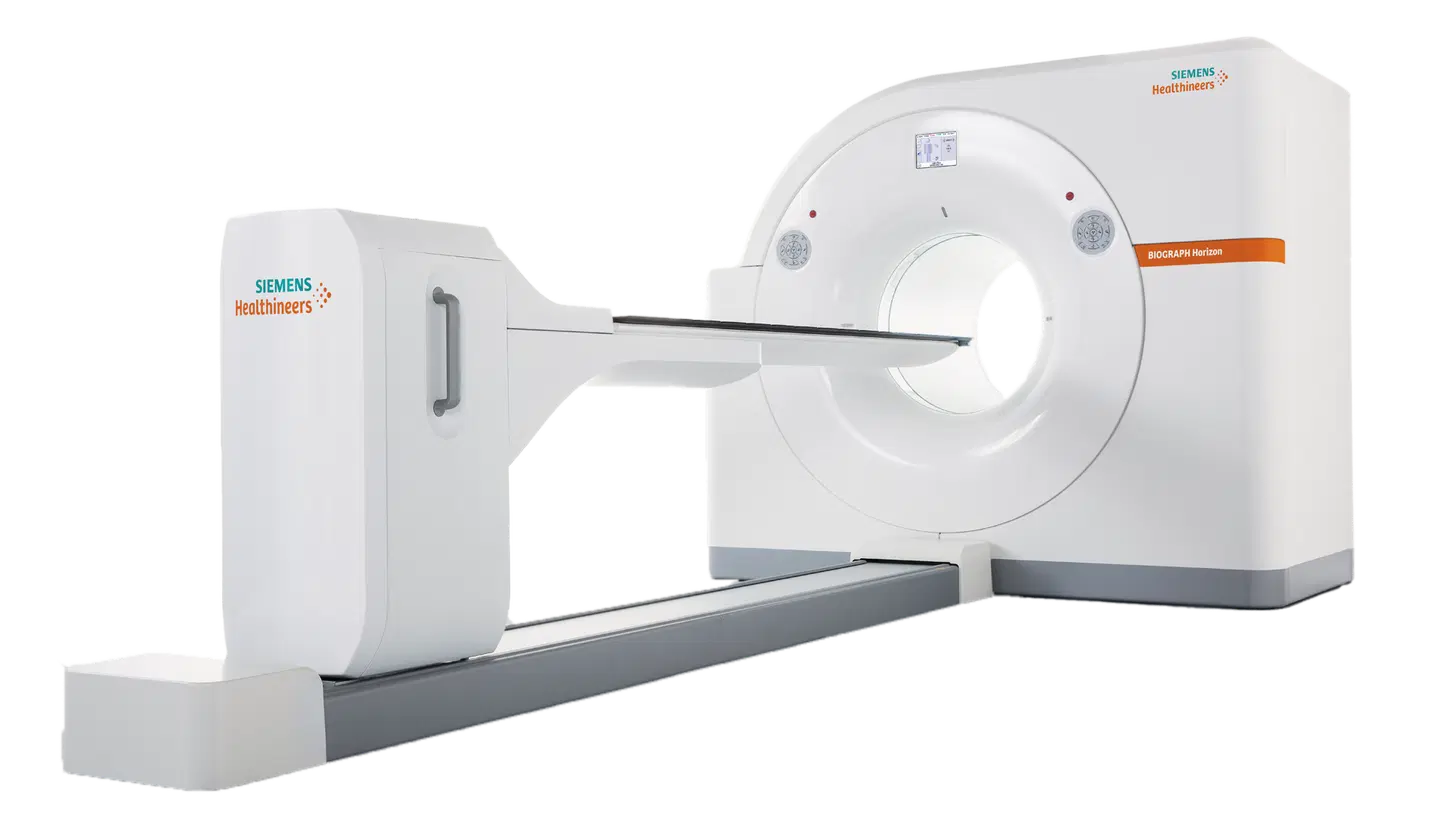Positron emission tomography (PET) uses small amounts of radioactive materials called radiotracers or radiopharmaceuticals, a special camera and a computer to evaluate organ and tissue functions. By identifying changes at the cellular level, PET may detect the early onset of disease before other imaging tests can.
- "Manavdaya Trust Sankul", Saroli, Dist. Surat, Gujarat.
- OPD : Mon - Sat 10.00 - 06.00. Sunday CLOSED
-
 24 Hour Helpline
24 Hour Helpline
-
 Emergency
Emergency
-
 Ambulance
Ambulance
Nuclear Medicine and PET CT
Nuclear Medicine and PET-CT Scan
The PET-CT scanner at Bharat cancer hospital combines two state of the art imaging modalities. By monitoring cellular glucose metabolism, PET provides very sen sitive information regarding the function and malignant potential of lesions. CT meanwhile provides exquisitely detailed anatomical information about the location, size, and shape of various lesions but cannot differentiate benign lesions from malignant lesions with the same accuracy as PET. The combined PET-CT scanner merges PET and CT images together and enables physicians to pinpoint with greater precision the location of a malignancy and ultimately stage the patient more accurately.
Expertise to PET CT Scan
-
What is PET CT and Nuclear Medicine?
-
What is PET/CT scanning ?
Nuclear medicine uses small amounts of radioactive material called radiotracers. Doctors use nuclear medicine to diagnose, evaluate, and treat various diseases. These include cancer, heart disease, gastrointestinal, endocrine, or neurological disorders, and other conditions. Nuclear medicine exams pinpoint molecular activity. This gives them the potential to find disease in its earliest stages. They can also show whether you are responding to treatment.
-
The Benefit of PET-CT in Oncology
PET being a functional imaging technique is superior to conventional anatomical imaging in the diagnosis, staging, restaging and disease monitoring in various types of cancer. Moreover, the appropriate use of PET can lead to a significant change in the management of your patient's care.
-
PET-CT and Cancer
Staging of Cancer: PET is extremely sensitive in determining the full extent of disease, especially in cancers. Confirmation of metastatic disease allows the physician and patient to more accurately decide on how to proceed with the patient's management. Checking for Recurrences: PET is currently considered to be the most accurate diagnostic procedure to differentiate tumor recurrences from radiation necrosis or post-surgical changes. Such an approach allows for the development of a more rational treatment plan for the patient.


